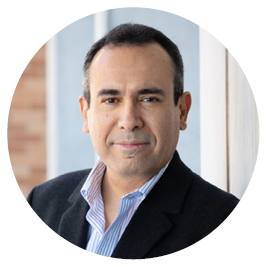Structural Engineering
Engineering Stronger, Safer, and More Sustainable Structures
Research in Structural Engineering emphasizes both theoretical and practical aspects, including computer-aided engineering, structural dynamics, and earthquake and wind engineering analysis and design. Structural engineers at the University of Utah focus on performance-based design and investigate the behavior of structures made from reinforced and prestressed concrete, structural steel, timber, and composites.
Research Areas
Structural
Dynamics
Earthquake & Wind
Engineering
Materials
Behavior
Advanced Structural
Sensing
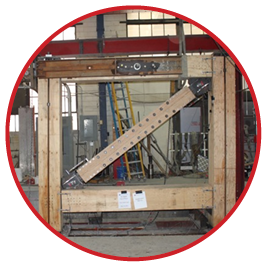
Testing mass timber framing inside an actuator in High Bay Structures Lab
State-of-the-Art Structures Lab
In the Layton Engineering Building, our Structures Lab is home to state-of-the-art equipment, including one giant actuator that stretches from the hangar-like ceiling to beneath the concrete floor. It can simulate the effects of seismic activity — with forces up to a 7.0 magnitude earthquake — on whatever is placed inside by vigorously rocking it back and forth in its gigantic rectangular shape. The research conducted in the lab contributes to improving the durability of structures (building, bridges, highways) and the development of more sustainable structural systems.
Recent News
American Concrete Institute Recognizes Ph.D. Student's Research on Concrete Rehabilitation
The American Concrete Institute recently recognized University of Utah Ph.D. student Sayal Shrestha's work on strengthening concrete infrastructure. Shrestha presented his research at the TriDurLE Annual Symposium and earned the top prize in the “Poster and Student Solutions Driven Competitions” category.
Srestha's research focuses on the experimental investigation of corroded concrete columns and their repair using innovative materials, contributing to advancing knowledge in concrete rehabilitation techniques.
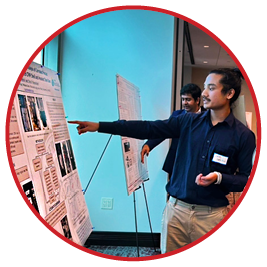
Dr. Emily Williamson in the Structures Lab
Leading the Way in Advanced Structural Sensing
Dr. Peter Zhu and his team are currently working on finding the internal defects of railroad tracks, stress levels of tracks and the most effective and efficient way to manage tracks. They recently developed and deployed a polarized infrared camera-based prototype system on a UTA TRAX train. The system performed rail track condition assessment and diagnostics, providing reliable damage detection and diagnosis for timber and concrete sleepers with an inspection speed of up to 35 mph.
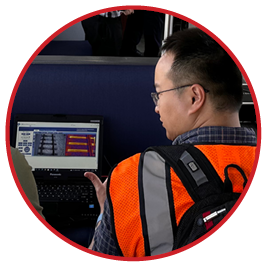
Dr. Zhu tests his technology on UTA TRAX
Research Spotlight
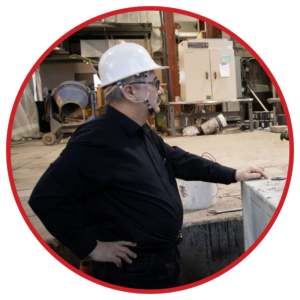
Dr. Chris Pantiledes
Dr. Pantelides Co-Authors Four Articles with Ph.D. Students
Dr. Pantelides is deeply committed to mentoring his graduate students, dedicating extensive time to guiding them through hands-on research in the structure’s lab. This commitment recently culminated in four co-authored publications with different Ph.D. students in four prestigious journals since July 2024, including Journal of Structural Engineering, Journal of Bridge Engineering, and Engineering Structures.
Dr. Roshina Babu is an Assistant Professor (Lecturer) in the Department of Civil and Environmental Engineering. She has about ten years of experience teaching undergraduate courses in Engineering Mechanics, Strength of Materials, and Structural Analysis. Her research interests are biomimetic structures, groundwater management in small islands, saltwater intrusion in coastal aquifers, and managed aquifer recharge. In addition to research interests, Dr. Babu is passionate about developing experiential learning projects for undergraduate students.
Dr. Luis Ibarra came to the U from Southwest Research Institute where he used finite element simulations and experimental tests to evaluate the mechanical response of engineered barriers for high-level radioactive waste. Dr. Ibarra is also registered professional engineer in Texas. His current research includes seismic performance of nuclear storage containers, seismic performance of Buckling Restrained Brace (BRB) frames, implementation of nonlinear dynamic capabilities in MOOSE software, and probabilistic risk assessment of nuclear components. His teaching interests include steel design, advanced topics, and structure loads and analysis.
Dr. Chris Pantelides is a structural professor in the CvEEN department. His teaching interests are structural earthquake engineering. He spends a lot of time with his graduate students working on research in the structure’s lab. Dr. Pantelides research interests include: seismic retrofit using conventional systems and FRP composites, supplemental damping systems, seismic resilience of buildings and bridges, mass timber buildings and shake table testing.
Dr. Xuan (Peter) Zhu is an Assistant Professor in the Civil & Environmental Engineering Department. He is currently teaching courses in engineering mechanics, structural analysis, and advanced structural sensing. Dr. Zhu's research interests focus on experimental mechanics, elastic wave propagation, vibroacoustic metamaterials, and their applications in nondestructive evaluation and structural health monitoring. His research team has been working with mass timber buildings, highways, railroads, and energy infrastructure to face challenges of the changing climate. View my open Ph.D. positions→


